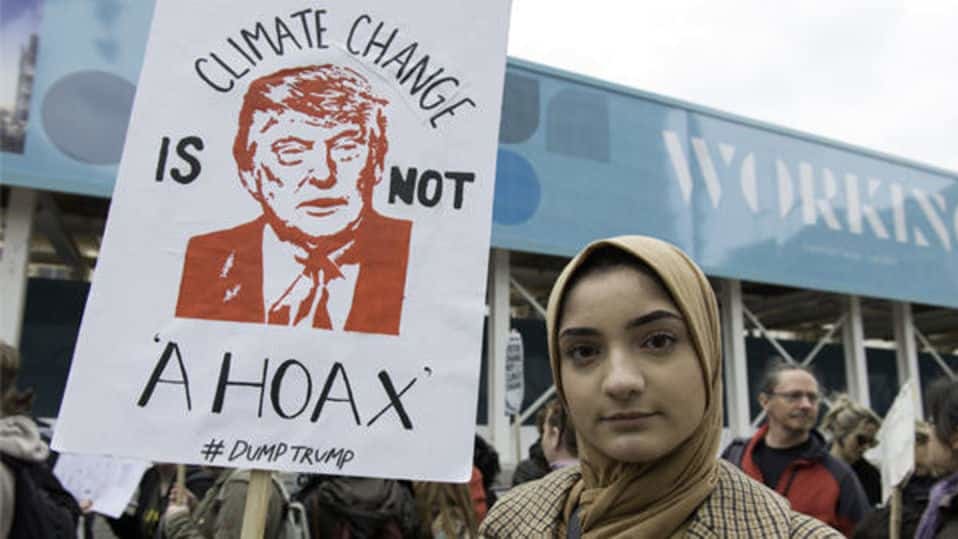
“For years, several versions of climate change denial were in circulation. Today, luckily, only a handful of fanatics deny the evidence. No one can escape the challenges by themselves. There is no wall that can protect any country, regardless of how powerful it is,” said Pedro Sánchez, the Spanish prime minister, at the inauguration of the ongoing COP 25 conference on the subject in Madrid. His was a pointed barb aimed at the conspicuous absence of US President Donald Trump, or any US official for that matter, from the UN summit.
Trump subscribes to a more old-fashioned form of climate denial. This revolves around conspiracy theories of faceless “global elites” and agenda-driven scientists being alarmist about a “natural” global process. This branch of denial has long collapsed under the weight of its own contradictions, demolished by ever-refined climate science.
This doesn’t mean it has entirely gone away. By now it’s almost expected that Trump will point to a winter snowstorm and ask where global warming is. Recently, Australian premier Scott Morrison defended his carbon-intensive energy policies by juggling a block of coal in parliament and saying, “This is coal, don’t be afraid.” Despite their governments’ attitudes, however, many Americans and Australians are indeed afraid of the climate crisis.
The new climate change denial is less confrontational, but more insidious. It doesn’t scream from the rooftops that climate change is a hoax. It acknowledges the science, but ignores the ever-increasing warnings of scientists. It’s fuelled, just like the old one, by energy companies. An attempt to stall what scientists and the UN Framework Convention on Climate Change (UNFCC) insist is the only way: Cut our dependence on fossil fuels so drastically that the world is completely carbon neutral by 2050.
This would inevitably hurt the bottom lines of the world’s leading energy companies. As we have seen in a previous column, just 20 such firms have contributed 35% of all emissions from 1965-2017. Many of these companies, like BP, Shell, ExxonMobil, Chevron and Total, have spent $201 million in anti-climate change lobbying, a survey by Hamburg-based data portal Statista, found in March. This kind of lobbying involves “controlling, delaying or blocking climate motivated policy”.
Oil and gas firms insist they are all for net zero carbon but insist that renewable energy isn’t going to achieve this on its own. On the other hand, the International Monetary Fund (IMF), in a May paper titled Global Fossil Fuel Subsidies Remain Large: An Update Based On Country-Level Estimates, states that globally, the fossil fuel industry receives $5.2 trillion in subsidies annually—that is, 6% of world GDP. The same paper says efficient fossil fuel pricing would lower global emissions by 28%, and increase government revenues by 3.8%. In a way, it’s easy to spot denial. As long as someone’s telling you that energy transition is “difficult” or “expensive”, you will know this is just old wine in a new bottle.
In next week’s column, we take a look at the outcome of the ongoing COP 25 summit in Madrid. Follow the series with #MintClimateTracker. The Mint Climate Change Tracker is now also a weekly podcast. Click here to hear the latest episode and subscribe to the podcast.